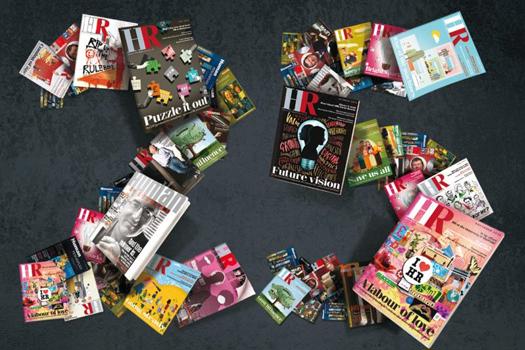Statistically HR spends only 28% of its time on work that directly adds value, leaving a questionable 72% of work that achieves very little. The research I looked at for the HR function across the globe was over a 10-year period and didn’t really change or adapt much during that time.
The answer to why HR is perceived to be dead lies in the profession's inability to change its strategic reason for being, the lack of direction from academia and HR institutions around the world, and the lack of energy HR professionals have in making a difference.
What is HR's role?
HR expertise at the very top: Does it matter?
HR business partner models are failing. So what next?
HR's role in strategic succession planning
I hear lots of people talk about what HR should be, including Dave Ulrich who suggests that HR is about ‘being a credible activist’, and the CIPD which says the following:
“HR is about helping an organisation to create value through its people – literally providing human resources. The work of an HR professional will vary depending on the type and size of their organisation, but could include recruiting people, training and developing employees, and helping to decide how staff should be paid and rewarded."
But where are the mentions of engagement, employee wellbeing, company strategy and strategic direction? Perhaps HR should be looking at how employees work together, including contemporary issues with Millennial and Baby Boomer teams and how they can collaborate to deliver promising results. It is issues like these that receive little attention from HR professionals, prompting a need to consider these factors both now and in the future.
Traditional HR is also on its last breath as HRDs fail to challenge the status quo – leading to the stagnation of the field. Furthermore, if you look at the training that is being rolled out for HR professionals it is largely lacking and fails to compare to other functions like IT and finance. This prompts a need for a revamp in HR training in order for the function to remain relevant in a fast-paced 21st century society.
Without the above questions being addressed HR is generally at the back of the bus doing the same old things they have always done and adding very little value to companies, employees, boards and CEOs. They should be at the front of the bus guiding and advising the drivers on their journey. Please don’t let the mantra of 'it’s always been done this way so why change' guide HR forward as the function will inevitably continue to lag behind.
For me there is a fundamental missing HR North Star that should give HR the strategic guidance and focus it needs to evolve. HR institutions and academia should set out what the primary areas of focus are, for example:
- Are you as an HR professional credible and influential in the boardroom? (Don’t answer this yourself, ask your CEO)
- Are you helping the CEO to shape the future direction of the company?
- How much admin is your HR team doing versus real HR business partnering?
These are tough questions and you need to be brave to answer them, but I hope you get the point I am trying to make.
The training that HR professionals receive coupled with the knowledge of HR institutions needs to be placed under scrutiny and ultimately bought up to date with real-life scenarios in order to aid effective learning and development. In addition, other areas that are missing should be addressed to add more commerciality and strategy into the kitbags of HR and HRDs.
There needs to be a mindset change from ‘fixed’ to ‘growth’ and instead of crying about not being on the top table understand why that is and work towards getting there. After all, if companies don’t have people at the heart of their business then they are in serious trouble.
Traditional HR is dead and it is now the right time to ask what HR’s role is in the future. We need to address what HR is doing at all levels and reconsider the function’s ability to add strategic value. The perception of HR and HRDs needs to change to acknowledge factually that HR does deliver value.
It is important that everyone involved in the HR function, HR institutions and academia stand up, look in the mirror and ask themselves: ‘what am I doing and more importantly why am I doing it?’ It is time for a new era of HR that benefits everyone; it is time to wake up and be the catalyst for change. If we don’t then HR will never be seen as a valuable and necessary part of any company.
Glenn Jones is a freelance HR consultant and author of new book Human Resources Changes The World








